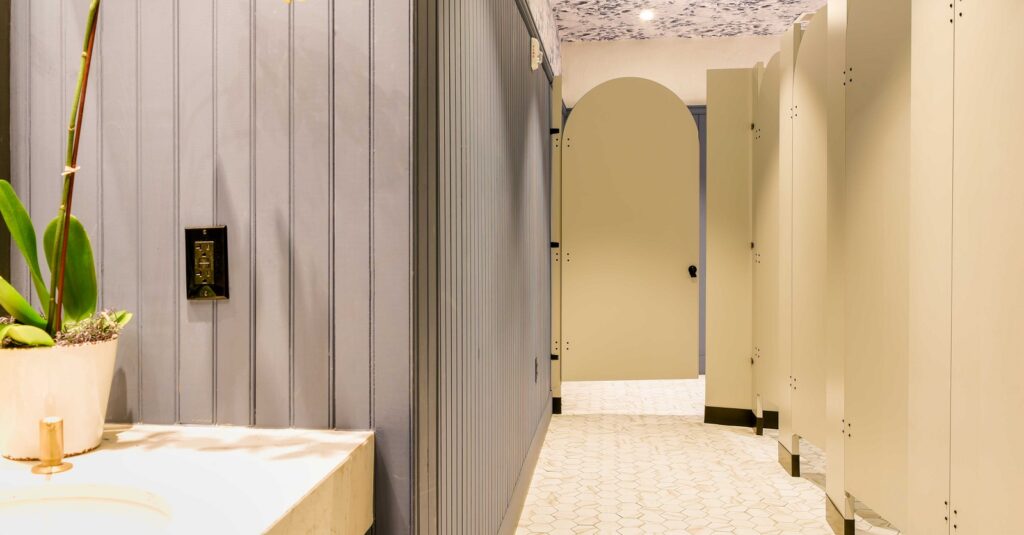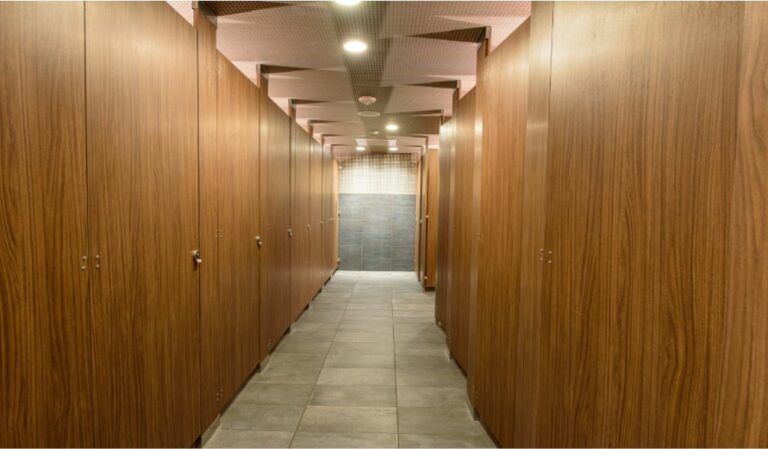This article explores ideas around slab doors (or flat panel doors) in public restroom toilet partitions, including print ideas you may not have considered before.
What is a Slab Door
A slab (or flat) door is simply a smooth, flat door without additional elements like moldings, captured panels, louver slats, etc.
Manufacturers typically make slab doors from a single piece of material.
Slab Doors for Design Fit
A common reason for specifying slab doors in toilet partitions is to fit the overall design of the restroom. A few examples of design fit considerations are discussed below.
European
“European” style restrooms favor a smooth, clean look. Restroom cubicles with slab doors are just the thing for this look (see our article on European stalls or our European product page).
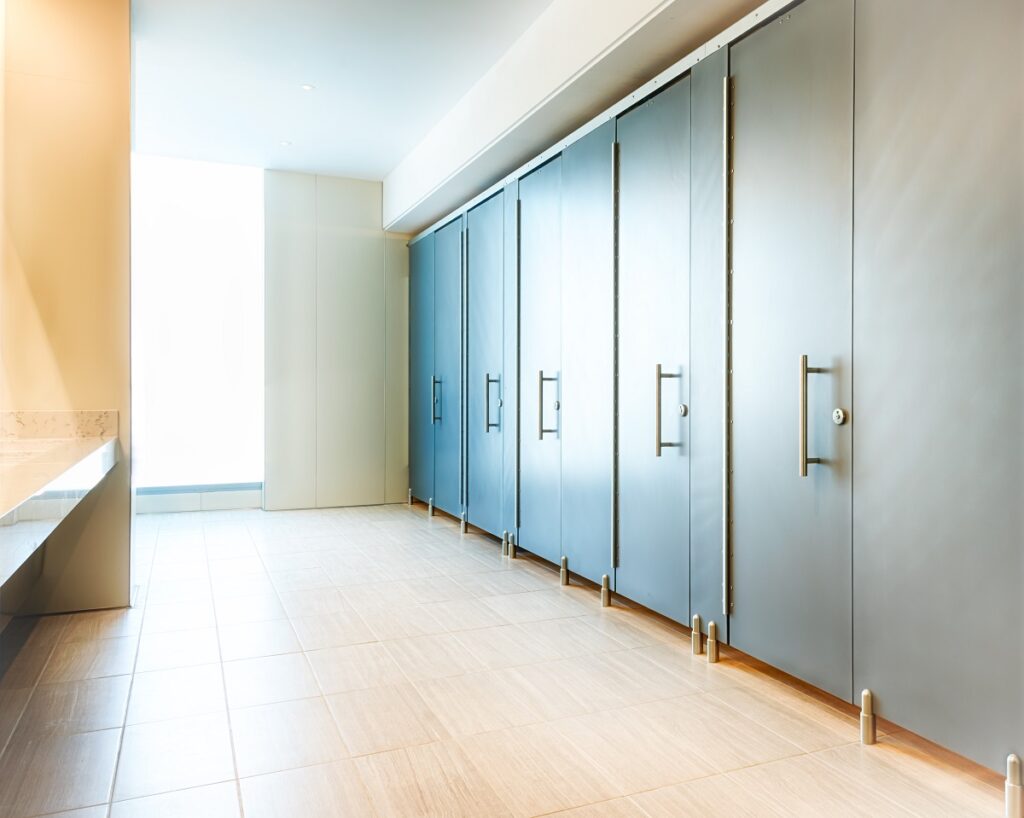
Balance
Some restroom designs are busy (example below). A slab door may help balance the room’s design.
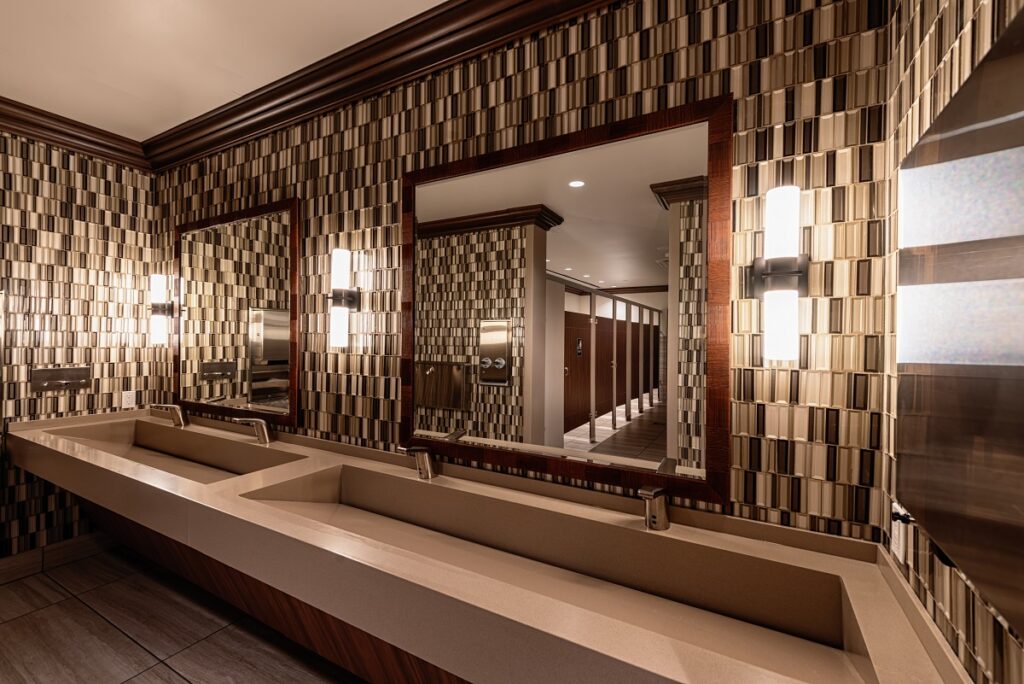
Organic Materials
Organic materials, like wood veneer, have an inherent beauty that may best be displayed in a slab door.
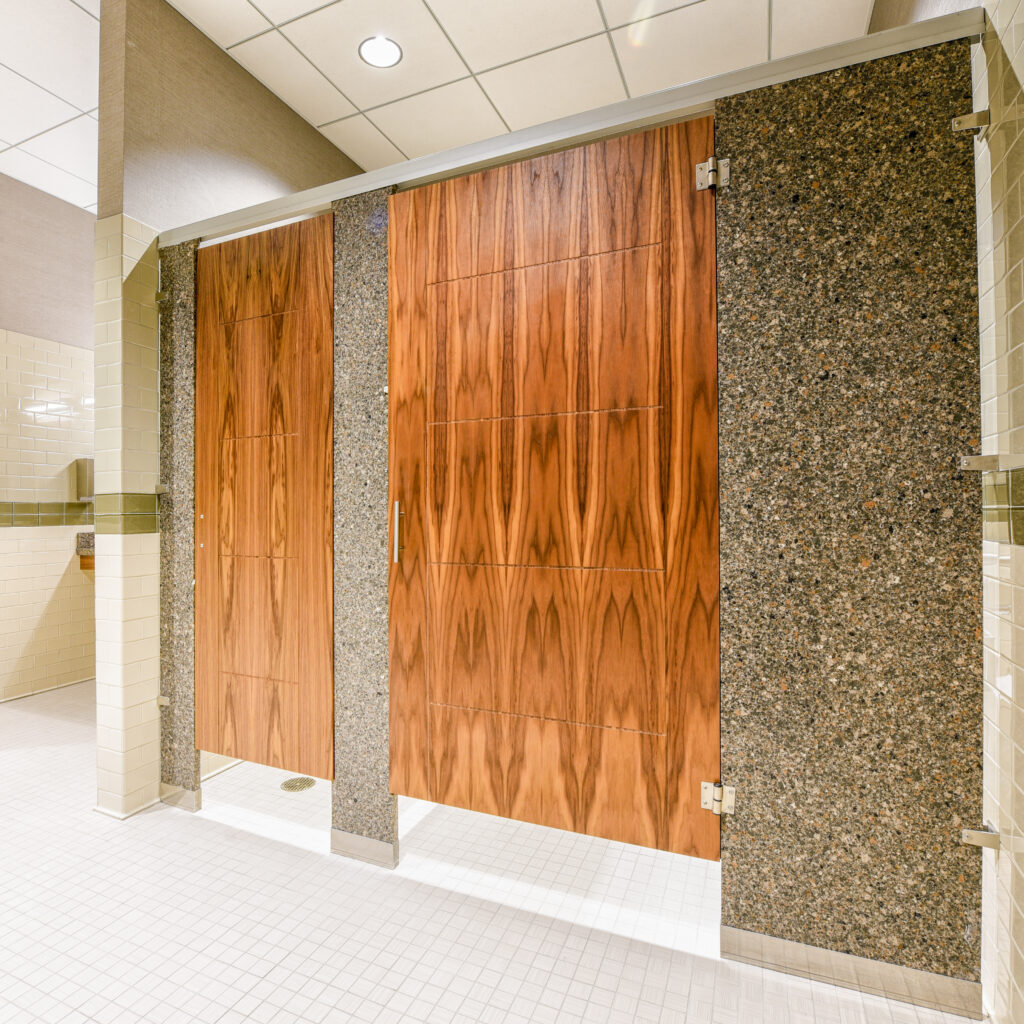
Material Options
Slab toilet partition doors can be manufactured from commonly used materials, including plastic laminate, compact laminate (phenolic), wood veneer, powder coated steel, stainless steel, solid plastic, solid surface, glass, and stone.
Costs and Lead Time
In our experience with toilet partitions, cost is the number one reason designs get “swapped out.” A slab door is usually the least expensive option, so specifying one up front can minimize re-design.
Another reason designs are “swapped out” for something else is lead time. Since slab doors are the easiest type of door to manufacture, they have the shortest lead time (for a given material). Short lead times increase the likelihood that the specified design will be implemented in the project.
Durability and Maintenance
Slab doors are monolithic which makes them less likely to break or be damaged. This is important in high-traffic public bathrooms.
Cleaning and maintaining slab doors is easier compared to doors with moldings, louvers, etc., which have hard-to-clean nooks and crannies.
Patterns, Colors, Finishes, and Print Options
Just because a door is flat, it does not have to be boring! Plastic laminates, for example, offer an extensive range of colors and designs. Wood grains can be stained to match control samples, resulting in an almost infinite variety.
In addition to standard patterns, laminate manufacturers offer many patterns. Wilsonart, for example, offers its Virtual Design Library (VDL). This program offers curated designs which can be both modified and fully customized.
As a case study, consider the partition door shown below. The original design called for the pattern to be manufactured as inlaid wood veneer. It became apparent that the cost of actual inlay would be prohibitive, so Ironwood collaborated with the designer to create the print laminate solution shown below.
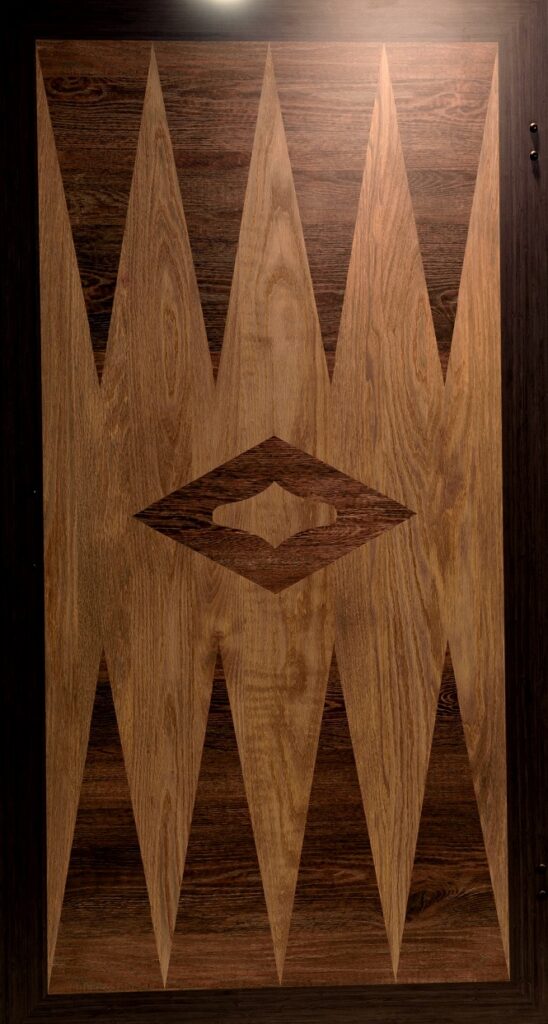
Inlays
Slab doors can be upgraded with more than just patterns. For example, inlays or engravings can be added to the doors.
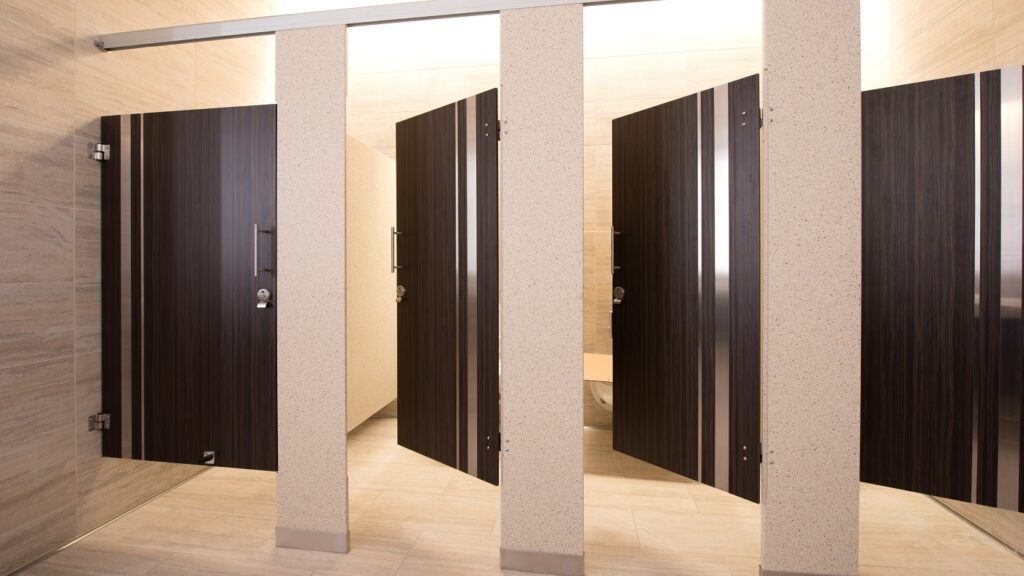
Custom Shapes
Slab doors do not have to be square. Custom shaping is an option which maintains many of the benefits of a slab door. This option can increase the cost and lead time advantages of traditional slab doors.
